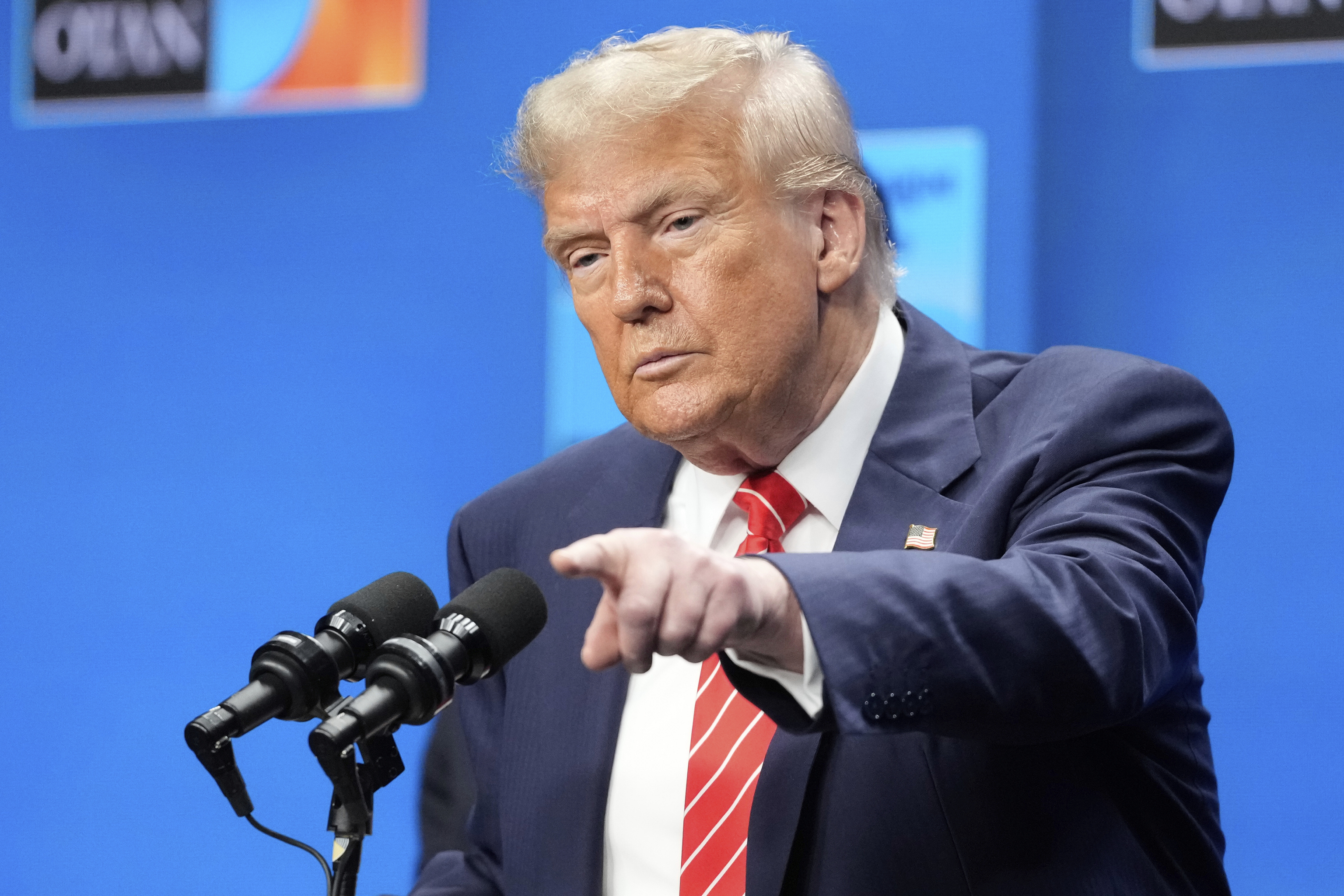Donald Trump threatened Spain yesterday with making them "pay double" if they continue to refuse to allocate more than 2% of their GDP to defense. "The economy is doing very well. And that economy could completely collapse if something bad happens. We are negotiating a trade deal with Spain and I will make them pay double," he said.
What could this threat translate into?
Based on the fact that the President of the United States is never very clear in his announcements or threats, everything seems to indicate that yesterday he was referring to the possibility of imposing specific tariffs on products that his country imports from Spain.
Could Trump specifically punish our goods?
Theoretically, the United States cannot indiscriminately tax all trade from Spain, but it could do so with specific products. "In principle, it cannot arbitrarily discriminate between EU countries, as the Union is a customs union with a common trade policy. But in practice, it can impose higher tariffs on specific products from a specific country (as it has already done with Spanish olives or French wine), as long as it justifies it based on WTO rules, for example, due to illegal subsidies, dumping, or national security reasons," explains Judith Arnal, principal researcher at the Real Instituto Elcano and the Center for European Policy Studies (CEPS) to EL MUNDO. What it cannot do, she points out, "is discriminate between identical products based on the country of origin without justification (for example, imposing a tariff only on Volkswagen cars manufactured in Spain and not on the same cars manufactured in Germany)," as it would have to initiate a formal procedure under the WTO or invoke the national security clause.
What is the trade balance between Spain and the US?
The trade of goods and merchandise is deficitary for us, which means that we buy more from the North American country than we sell to them. Specifically, in the first four months of this year, the trade deficit has grown to 5,173 million euros, compared to 3,590 million in the same period of the previous year, as reported this week by the Ministry of Economy based on Customs data. Exports have fallen by 1.8% so far this year, while imports have grown by 15.6%. In April, the first month with tariffs in place, sales to the USA have dropped by 13.8%.
What do we sell the most to the US?
The most significant exports to the USA are machinery and mechanical appliances, which in 2024 amounted to 2,510 million euros; followed by electrical machinery and equipment (1,503 million euros); animal or vegetable fats, oils (1,246 million); fuels and mineral oils (1,218 million); and pharmaceutical products (1,095 million), according to Customs data.
If the US imposes tariffs on Spain, would it be the first time?
No, in 2021, due to the implementation of the so-called 'Google tax' in Spain, the USA decided to apply a 25% tariff on a range of 36 Spanish products, including footwear, octopuses, hats and caps, and glassware.
How has the Government reacted to yesterday's threats?
Pedro Sánchez responded to Trump's statements on Tuesday, stating that "Spain is always the solution, never the problem. We provide solutions," after ensuring that he had not had the opportunity to greet him or exchange words with him at the NATO summit. "Everyone knows about the guarantee, trust, and predictability of Spain's commitment to NATO," he said. Shortly after Trump's threats to the Spanish economy, Minister Carlos Cuerpo avoided comments and confined the conflict to negotiations with the EU. "For us, it is very important that within the framework of negotiations between the EU and the United States, we continue to make progress to achieve a fair and balanced agreement," he pointed out.
